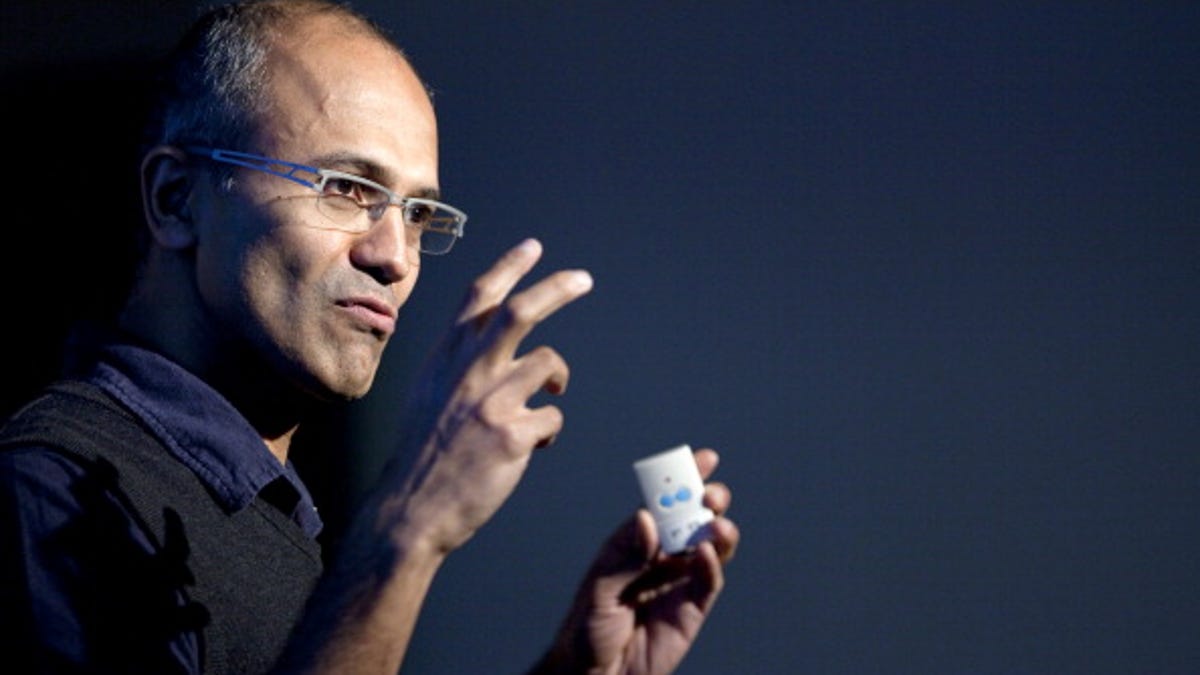Microsoft will hire a CEO with his head in the cloud
The most likely candidate is current Microsoft cloud head Satya Nadella. His job will be to further the plans already put in place by his predecessor.

Microsoft is about to get a new CEO, only the third in its 38-year history. Whoever takes the job knows that the scrutiny will be intense. The expectation is that after a brief honeymoon period the new chief will unveil a plan that could alter the course of Microsoft's history and reveal the fate of Windows, Bing, Xbox, and other parts of the company's product portfolio. Will Bing and Xbox businesses be carved out or sold? How will Windows recover from the decline in PC sales and Microsoft's slow start tapping into the mobile revolution?
Those are important questions that a new CEO will have to address. But answers already have been formulated by the current administration, although they're not written in stone.
Steve Ballmer's parting act was the reorganization of the company in July of this year and a detailed plan for how each division will focus its resources, go to market, and recover from missed opportunities. The end result would be rejuvenation of the stock, which flatlined during his tenure, and company morale.
Whoever gets the job, it will be someone who the two former CEOs, Bill Gates and Ballmer, believe can carry out the plan, making adjustments as necessary with speed and efficiency. Whatever course the plan ultimately takes, everything rides on the cloud.
As we go to market, we will primarily monetize our high-value activities by leading with devices and enterprise services. In this model, our consumer services such as Bing and Skype will differentiate our devices and serve as an on-ramp to our enterprise services while generating some revenue from subscriptions and advertising. Enterprise services continue to be an area of great strength, growth and opportunity as businesses of all sizes look to Microsoft to help them move to the cloud, manage a growing number of devices, tap into big data and embrace new social capabilities.
An estimated $2 trillion will be spent on IT this year. Microsoft's success is tied to getting as much of that spend as possible, not from selling a few more Xbox subscriptions or ads on Bing.
Microsoft is considering inside and outside candidates to replace Ballmer. The inside person most qualified to carry forward the plan is Satya Nadella, the current cloud computing executive vice president. He runs the group that built Microsoft's Cloud OS, which powers Office 365, Bing, SkyDrive, Xbox Live, Skype, Dynamics, and enterprises around the world. His previous commanding roles during more than two decades at Microsoft include stints as president of the Server and Tools business, senior vice president of R&D for the online services, and vice president of the Microsoft Business division. He has experience with all the key parts of Microsoft's business.
In an interview with Quartz last week, Nadella shared his view of future:
It's all going to move to the cloud in some shape or fashion. It need not all be a public cloud run by one North American company. It can be a private cloud or a public cloud. In our case we're participating in both those markets. We've built a big business here. But we're still a low-share player. We have a significant commercial business, but in the big scheme of things, when you say $2 trillion, we're nothing. So the way we look at it is how do we become part of the fabric which is helping with this digitization of everything.
Nadella says that Microsoft needs to constantly reinvent itself. "There's nothing in this industry -- and definitely in this particular segment -- that's built to last," he told ZDNet's Mary Jo Foley. "It's all about being able to reinvent yourself."
Ballmer's lasting legacy was reinvention, Nadella said. "As [Ballmer] would say, it's about batting averages. You're not going to take everything and be a hit. It's not like, oh, we have a great enterprise business. In fact, we have had many enterprise business births and deaths in his tenure."
While the enterprise business batting average was high, Ballmer whiffed when it came to the mobile revolution. He left the reinvention to others, and now his successor will have to figure out how to get some hits, if not home runs, as Windows fights for share against Apple's iOS and Android platforms, as well as for enterprise cloud infrastructure from Amazon, Google, and others.
As someone who was a core part of the Gates and Ballmer eras, Nadella could be tainted by the past errors that resulted in Microsoft now playing catch-up with Apple, Google, and others who invested early in mobile and the cloud. On the other hand, he could be viewed as a hero for what he has done building Microsoft's Cloud OS technology and business. If the Cloud OS, more than Windows, is Microsoft's future, then Nadella is in a good position to lead the company, and see if he can improve upon Ballmer's batting average.

